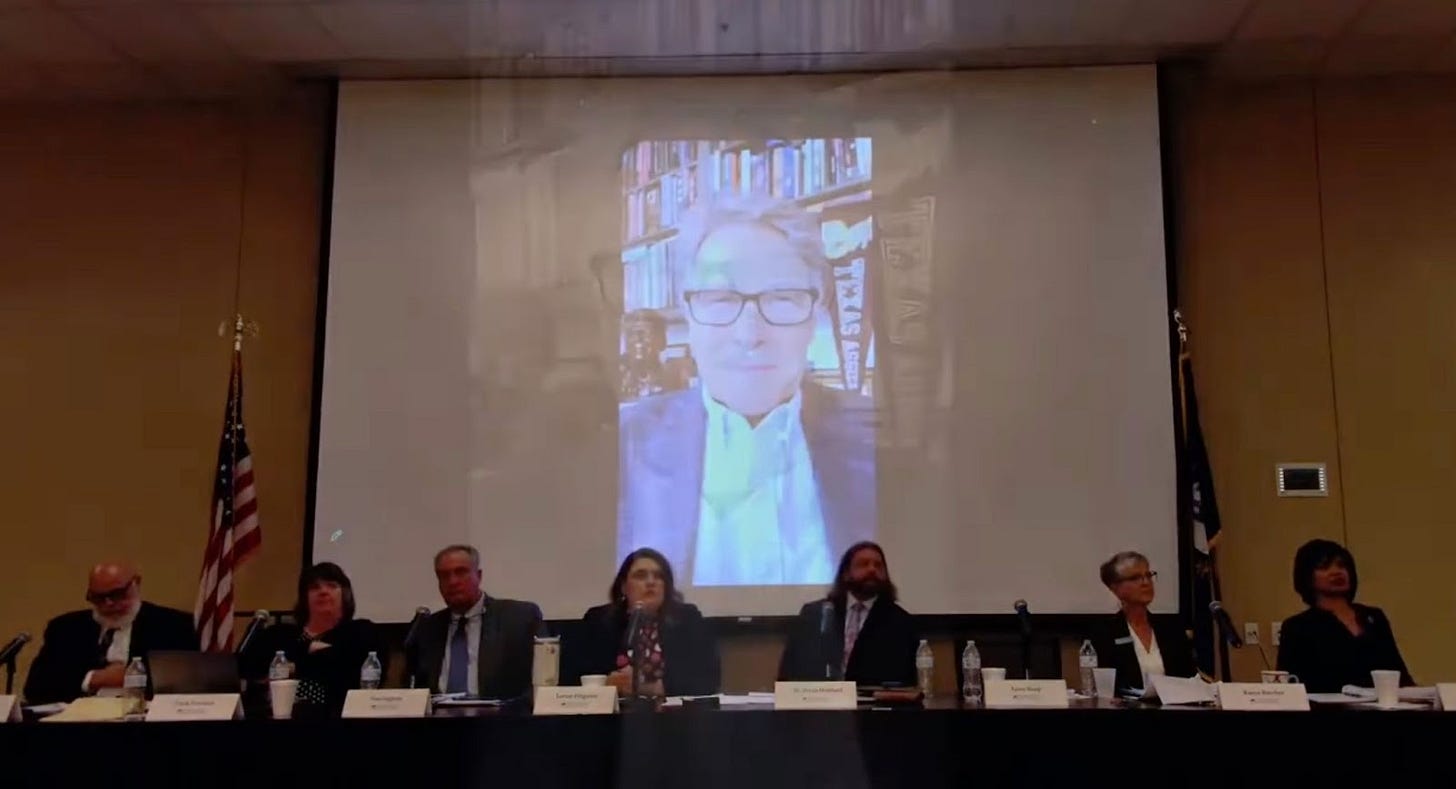Congressman from California introduces national psilocybin legislation; Kentucky holds ibogaine public hearing while California lawmaker removes ibogaine from state’s psychedelics bill
Plus: European Medicines Agency acknowledges psilocybin as depression treatment, and How does psychedelic-assisted therapy work?
Happy Friday, and welcome back to The Microdose, an independent journalism newsletter brought to you by the U.C. Berkeley Center for the Science of Psychedelics.
U.S. Rep. Garcia introduces VISIONS Act of 2023
On Wednesday, U.S. representative Robert Garcia (D-CA) introduced the Validating Independence for State Initiatives on Organic Natural Substances (VISIONS) Act, which would prohibit the federal government from spending money to prevent state and local governments from implementing laws that allow the “use, distribution, sale, possession, research, or cultivation of psilocybin.” While psilocybin would remain illegal at the federal level, if passed, the bill would attempt to shield regulated psilocybin programs in states like Oregon and Colorado from federal intervention. “We’re taking the exact same language that was used for cannabis and we’re applying it to psilocybin,” Rep. Garcia told the Los Angeles Times. “This really empowers states and localities.”
The State of Psychedelics: Kentucky holds ibogaine public hearing while California’s SB 58 strikes ibogaine from final psychedelics bill
Kentucky’s Opioid Abatement Advisory Commission held a day-long public hearing about a recent proposal to spend $42 million of opioid lawsuit settlement funds on ibogaine research. Ibogaine is a psychoactive substance found in several types of plants, such as the iboga shrub. Researchers have studied ibogaine as a possible treatment for addiction and depression. Nearly two dozen people spoke at the hearing, including former Kentucky Congressman and Attorney General Ben Chandler, former Texas governor Rick Perry, veterans’ mental health non-profit VETS co-founders Marcus and Amber Capone, as well as veterans and others who have undergone ibogaine treatment for opioid addiction. All spoke favorably about the substance’s potential to treat severe mental health and addiction issues. Two clinicians, Joseph Barsuglia and Peter Hendricks, mentioned the cardiac risks of ibogaine. “It does not come without risks, of course – everything comes with risk,” said Hendricks, a psychologist at the University of Alabama Birmingham. “When ibogaine is administered in very carefully controlled settings with medical oversight, many of these risks can be mitigated.” In the next several months, the panel will make a final decision on whether Kentucky will spend $42 million of the state’s nearly $900 million in opioid lawsuit settlement funds on ibogaine research.

Last week, we reported that the California legislature passed Senate Bill 58, which if signed by Governor Newsom, will make it state-legal for people over 21 to possess, prepare, grow, gather, gift and transport – but not sell – a variety of psychedelics. We’ve since learned that in the final stages, ibogaine was removed from the list of substances in the personal use decriminalization section of the bill (it remains on the list of drugs to study).
This change is not yet reflected in the online version of the California legislature’s bill text, so we reached out to the office of State Senator Scott Wiener, who introduced the legislation. His office confirmed that their team had recommended removing ibogaine after talking with people who had experience with receiving and administering ibogaine therapy. “It’s one of the substances that typically you should be doing under supervision,” Wiener’s team told me. (A special thanks to readers who wrote to alert us about ibogaine’s removal from the final bill.)
Want the latest psychedelics news? Subscribe! (It’s free!)
Results of largest longitudinal survey of psilocybin users
People who use psilocybin outside clinical research settings self-report improved mental health and well-being, according to new research from Johns Hopkins researchers. The study, published this week in Frontiers in Psychiatry, included survey data from over 2,800 adults. Researchers surveyed participants two weeks before they planned to take psilocybin, then again a day before, 1-3 days after, 2-4 weeks after, and 2-3 months after they took the drug. Of the 2,800 who started the study, 657 completed all surveys, and overall, more than 90% of participants said their psilocybin experience was positive. A relatively small number of participants reported adverse reactions; six reported seeking medical care and 52 reported seeking psychological support from therapists or friends and family after their psilocybin experience.
It’s often tricky to know what can be extrapolated from this kind of self-reported data to better understand the broader public. In this study, more than 80% of the participants were white, and the majority of participants were highly educated, having a bachelor’s degree or higher. In addition, the type of people who choose to take psilocybin and opt to volunteer their time to a study like this do not necessarily reflect the population at large. Those types of differences could “potentially skew results,” the authors wrote.
European Medicines Agency acknowledges psilocybin as depression treatment
The European Medicines Agency (EMA) recently released updated draft guidelines on clinical investigations for depression treatments, and they include a section on psychedelics. Two previous versions of these guidelines were published in 2002 and 2013; the updated document reflects changes informed by the last decade of research. In the guidelines, the EMA recommends clinical investigations start with studying participants in a “more severely affected population, such as patients with treatment resistant depression.” The document highlights the usual methodological difficulties with psychedelic research, including the challenges with blinding participants in studies and understanding the roles that participants’ expectations and psychotherapy style can have on outcomes. The EMA will accept public comment on the document through March 2024.
How does psychedelic-assisted therapy work?
There are a lot of unanswered questions about psychedelic-assisted therapy, write University of California at San Francisco’s nurse practitioner Andrew Penn and Mt Sinai physician Rachel Yehuda in a new paper published in Psychedelic Medicine. Among those unanswered questions: Which types of conditions might benefit from psychedelics? Are research findings generalizable to the overall patient population? And what are the appropriate dosing quantities for these substances? Penn and Yehuda argue that these questions must be addressed by empirical research, or the field risks causing irreparable damage to psychedelics’ reputation.
They point to historic lessons from psychedelics and other drugs, too, including the downfall of Chantix (varenicline), which was approved as a smoking cessation drug in 2006. After it was approved, there were reports that the drug exacerbated schizophrenia and bipolar symptoms, leading the U.S. Food and Drug Administration to place a so-called black box warning on the drug, which resulted in far fewer patients taking it. Years later, researchers determined there was little evidence the drug actually exacerbated mental health issues, but the drug’s prescription numbers never rebounded. “A sullied reputation, once established, is difficult to rehabilitate. Negative outcomes can happen with all drugs,” the authors write. To prevent a similar fate for psychedelic-assisted therapy, the researchers write that “it will be critical to amass safety data with more trials that can identify emergent patterns of harm and for clinicians to begin to take steps toward mitigating these potential risks.”
The authors also address how advocates’ efforts, including ongoing state legalization and decriminalization campaigns, could affect researchers’ efforts. Advocates “may attempt to drive this process faster than the scientific evidence,” they write. Such advocacy efforts “may pose a distraction from the slow, deliberate research needed to determine whether these treatments are safe and effective in clinical populations.”
“I think I was hungry for ego death in general and I have sought experiences of ego death in various capacities in my life. In psychedelic drugs, in music, in art, but mostly in drugs.” The New Yorker staff writer Jia Tolentino discusses ego death through psychedelics, religion, and parenting with NPR’s Rachel Martin.
Why are drug dealers cutting other drugs with fentanyl? The podcast Search Engine investigates that question over two episodes. (Here’s part one and part two).
The Christian Century discusses Johns Hopkins researchers’ study of psychedelics and religion and explores what Christians should make of the potential of psychedelic drugs to deepen people’s spiritual lives.
A leaked 2016 report from the UK Government’s Advisory Council on the Misuse of Drugs advocated for repealing personal drug possession laws, The Guardian reports, but the UK Home Office told the newspaper that the government has “no plans to consider legalization or decriminalization of drugs.”
Writer Glennon Doyle discusses psychedelics with psychologist Hillary McBride on her podcast We Can Do Hard Things.
You’re all caught up! Have a great weekend. We’ll be back in your inbox on Monday with a new issue of 5 Questions.
If you know anyone who might like the latest on psychedelics in their inbox, feel free to forward this to them, or click below.
Got tips? Email us at themicrodose@berkeley.edu.









